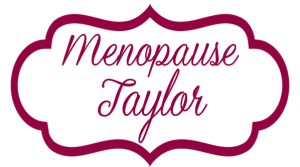Leakage and Shrinkage
We live in an era of name changes. The reasons for name-changing vary, but some are quite baffling to me. Let’s see, the “trash man” is no
longer the trash man. Now he’s a “waste management worker.” A woman who stays at home rather than going to a job somewhere else used to be called a
“housewife.” But, now she’s a “household engineer.” A waiter at a restaurant is now called a “server.” And a secretary is now an “administrative assistant.”
More interesting than these name changes themselves are the reasons for the name changes in the first place. Most often, the need for a name change has to do with being politically correct. Alternatively, it’s about making the people who function in a certain capacity feel better about their job titles.
Such name changes for job descriptions always struck me as things outside the realm of medicine. But not anymore. Now, doctors are
“providers.” But so are nurse practitioners and physicians’ assistants. A distinction between them might hurt someone’s feelings.
More commonly in medicine, names for diseases change from time to time, but it’s usually due to a new discovery or refinement of information that makes the former name outdated, or even inaccurate. But that’s changing, too. The need for political correctness and making patients feel good about themselves has even begun to induce name changes for actual diseases.
Recently, the name for some of the symptoms of menopause have changed.
Two of the most bothersome symptoms of menopause are Urinary Incontinence and Vaginal Atrophy.
“Urinary incontinence” is when you leak urine unexpectedly. You may dribble when you laugh, sneeze, cough, jump, or lift a heavy object. Or, you might just leak spontaneously with no activity at all. It’s very common at menopause, and there are many ways to manage it or cure it.
“Vaginal Atrophy” means that your vagina shrinks … literally. You notice symptoms like vaginal dryness, itching, burning, and pain with intercourse. But the reason all these symptoms occur is because you lose the vitally important estrogen on which your vagina depended. So, without it, your vagina cannot survive. Thus, it begins to shrink … or disappear. And the medical term for that is “Vaginal Atrophy.” But, it’s something that you can prevent entirely.
So, the terms “Urinary Incontinence” and “Vaginal Atrophy” are both absolutely accurate for the symptoms they designate. I’m all about simplicity. Why have complicated names when you can use simple ones? In simplistic terms, Urinary Incontinence and Vaginal Atrophy are nothing but “Leakage” and “Shrinkage.”
But they both recently underwent a name change. And their names were not changed simply to “Leakage” and “shrinkage.”
Why the name change for two perfectly accurate names?
Well, for the sake of political correctness and good feelings, of course … just like so many other name changes in our lives today!
It turns out that medical authorities claimed that women found the terms “Urinary Incontinence” and “Vaginal Atrophy” demeaning. So, they changed their names. Not only that, they merged the two entities into one single entity … even though they don’t always or even typically occur together. Maybe that was to make women feel like they had only one problem instead of two.
Now, instead of having “Urinary Incontinence,” and / or “Vaginal Atrophy” you have “Genitourinary Syndrome of Menopause.”
Oh, and you can’t name anything without giving it an acronym!
So, Genitourinary Syndrome of Menopause is “GSM.” That makes it sound nifty.
Now, I have no problem with name changes. But I do have a problem with focusing on the wrong thing. And, in my opinion, all this focus on the names of these entities rather than on education about them and treatment of them is an example of putting the em-PHA-sis on the wrong syl-LA-ble.
The fact is that, while many women suffer from these two symptoms of menopause, no one talks about them! And, since no one talks about them, women are not educated about them. And if your so-called “education” involves using long fancy terms like “Genitourinary Syndrome of Menopause,” you might have trouble learning what you need to know in order to do something about it.
I think it’s best to keep things simple. Patients don’t need fancy, complicated names for their symptoms or diseases. What they need is comprehension. With such convoluted, merged, modified names, patient comprehension is lost.
If you start dribbling urine, but refuse to speak up about it or have no idea that there are ways to correct it, what good is it to give
it a different name? That’s putting the em-PHA-sis on the wrong syl-LA-ble. It would be a whole lot more direct and useful to just call it “Leakage.”
If you start having vaginal itching but have no idea it’s a warning signal that your vagina is shrinking, what good does it do to change
the name to make you feel better about it? That’s putting the em-PHA-sis on the wrong syl-LA-ble. It would be a whole lot more direct and useful to just call it “Shrinkage.”
I think it would be a whole lot better for women if medical professionals focused more on educating their patients and offering them options
for these symptoms instead of changing their names.
I mean, rather than naming it, they should be taming it. Who cares what you call it when the goal is to forestall it? Why label it when you
should just disable it? And why give it some nifty acronym to abbreviate it when you can just alleviate it?
I imagine that this name change to “Genitourinary Syndrome of Menopause” involved a whole host of physicians getting together, mulling
over new names for hours or even days. It would have made a lot more sense if all that time and energy had been focused on how to educate more women about the urinary and vaginal changes that take place at menopause and offer them solutions. And labeling them as “Leakage” and “Shrinkage” would not have required much of an explanation. But, every woman would certainly understand them immediately.



